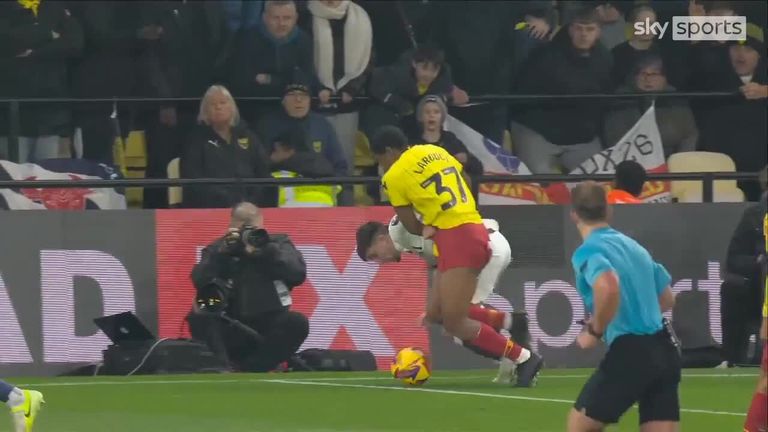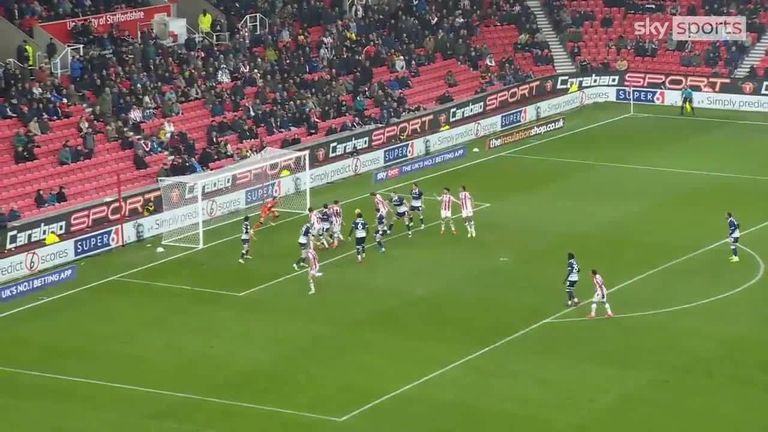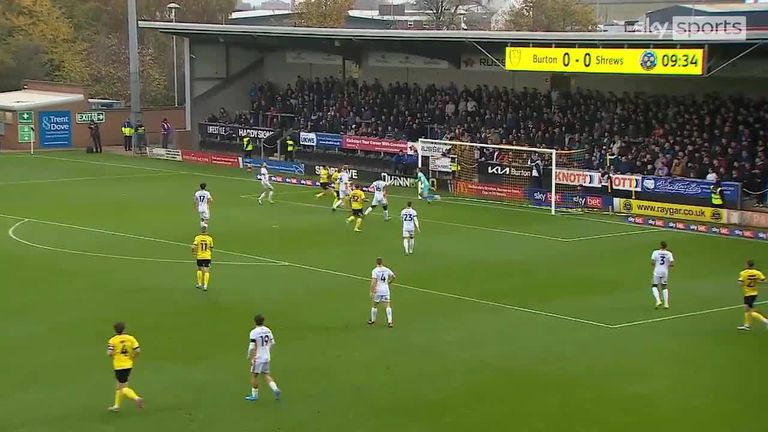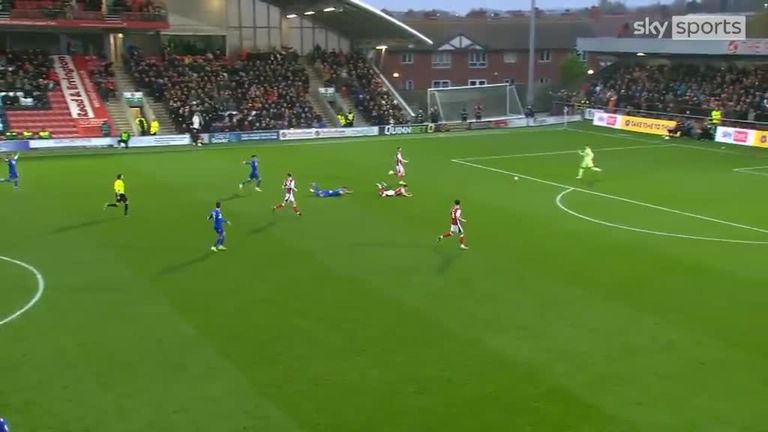[ad_1]
In Behind the Whistle, former Premier League referee Chris Foy goes through a selection of key match decisions from the latest action in the Sky Bet Championship, League One and League Two.
Behind the Whistle aims to give supporters of EFL clubs an insight into the decision-making considerations and also clarification of certain calls to provide an understanding of how the laws of the game are interpreted.
As part of a regular feature on Sky Sports following the conclusion of a matchday, Foy will be here to run you through some refereeing matters in the EFL…
Watford 1-0 Oxford United
Incident: Possible penalty (Oxford United)
Decision: No penalty awarded (Oxford United)
Foy says: “I think this is a good example of clear and concise officiating and it is the correct decision not to award a penalty in this instance.
“The defender is holding initially, and although there is then some mutual holding as the attacker holds onto the shorts of the defender, the main offender is undoubtedly the defender. It’s also important to acknowledge that the impact of this holding is outside the box, with them then falling into the penalty area, rather than a sustained action that continues into the box. The impactful holding happened outside.
“The referee’s positioning allows him to identify the location of the impactful holding and the correct call was made to award a free-kick and not a penalty. The referee then does well to clearly communicate this decision to the players.”
Stoke City 1-1 Millwall
Incident: Possible penalty and red card (Stoke City)
Decision: No penalty awarded (Stoke City)
Foy says: “As the corner kick comes into the penalty area there is a clear holding action by the Millwall No 5, this clearly impacts the ability of the Stoke attackers’ next movements.
“The holding also denies an obvious goalscoring opportunity and, given there was no attempt to play the ball, the referee should have awarded a penalty kick and shown a red card to the Millwall defender for DOGSO (denying an obvious goalscoring opportunity).
“The referee will be disappointed to have missed this, maybe because he was positioned a little too centrally and therefore he was looking through the back of the defender, rather than looking at the situation from more of a side-on view.”
Burton Albion 2-0 Shrewsbury Town
Incident: Goal scored, possible offside (Burton Albion)
Decision: Goal awarded (Burton Albion)
Foy says: “This is a really good decision from the assistant referee given that there are two attackers looking to get on the end of the incoming cross, one of whom appears to be in an offside position when the ball is played.
“Although the Burton Albion No 9 has just strayed offside, he does not become involved in active play, and it is the incoming player (No 7) at the back post that ultimately makes contact with the ball and scores the goal.
“The assistant referee was absolutely correct to keep the flag down and allow the goal to stand.”
Fleetwood 1-0 Bradford City
Incident: Possible denial of a goalscoring opportunity – DOGSO (Fleetwood)
Decision: No foul awarded (Fleetwood)
Foy says: “In the quickly developing phase of play, Fleetwood No 5 and Bradford No 9 come into contact as they both turn to pursue the ball, resulting in both players falling to ground. The referee’s positioning here allows him to correctly identify that the contact between the players does not meet the high threshold for penalising contact, and he correctly allows play to continue. This means that the situation does not need to be considered as a possible denial of an obvious goal-scoring opportunity as there is no foul.
“Had the referee penalised the defender, there would be an element of doubt as to whether the attacker was likely to gain control of the ball and make progress on goal, therefore it would be a promising attack, and not a DOGSO.”
[ad_2]
Source link



